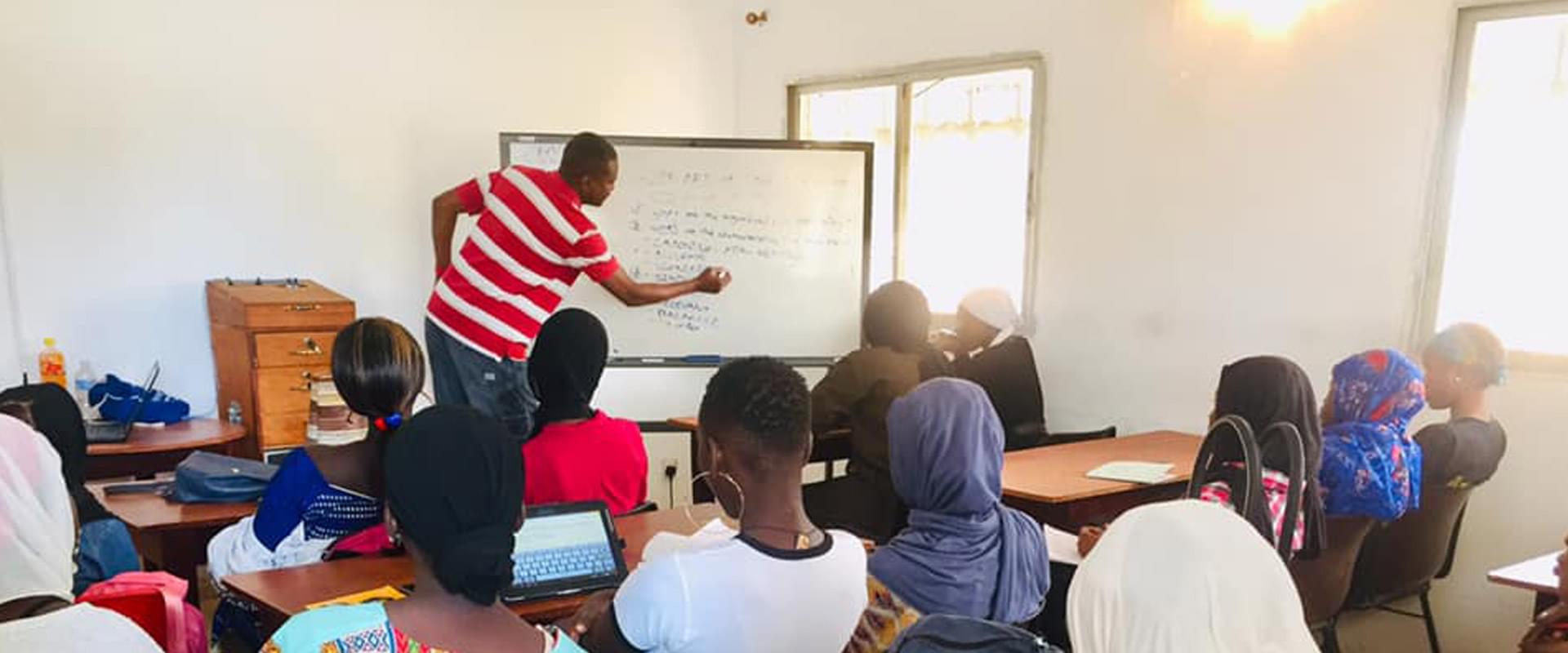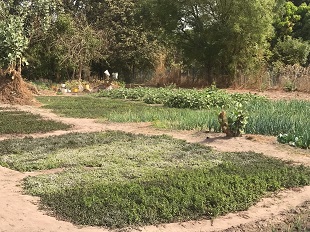
Mar 7, 2022 4:09 PM | Article By: Adama Camara

Variety of vegetables at Somita women garden
Like many countries, Agriculture remains a key contributor to the Gross Domestic Product (GDP) of The Gambia, yet farmers remain poor despite the positive influence their agricultural activities have on the country’s economy.
Of those farmers, many are women who engage in vegetable gardening for their upkeep and that of their families. Mostly, the women gardeners sustain the needs of their families from the income generated from the sales of their vegetable products.
Contrary to the energy and time invested in the community and/or back yard gardens by them, there is limited access to the market for the hardworking and committed women to sell their products post-harvest. That makes access to market a challenge for them, especially those in the rural area.
Due to the limited access to markets for most of the women post-harvest, they are compelled to sell their vegetable products at a cheaper cost within their communities or travel afar to the nearby markets in major towns to sell. Either of these options has numerous challenges for them.
In addition, due to the nature of most of those community markets and the distance to the major markets in the nearby towns, many of their products go on unsold and perish in the end because of the lack of storage facilities at their disposal to preserve the leftovers. The perishing of their unsold products causes economic losses to them and further toughens the sustenance of their families from the income they generated from the sales of the products.
In the build up to the April 9 parliamentary election, women gardeners in three districts in the Fonis- Berefet, Bintang and Kansala told this reporter that their votes are for candidates who would ease their nightmare. In other words, a candidate who would ease their challenge to access the market for the sale of their vegetable products, after harvest.
Access to market, decider for the women
What supposed to be a moment of joy and gain for her, Manlafie Jarjue, the head of vegetable growers in Somita in the Foni Berefet District enumerated the numerous difficulty she faces accessing market, anytime she harvests her vegetables for sale, which leads to economic losses for her, instead.
“Most of my vegetables get rotten along the way, although the road is good but Brikama is far from here (Somita). And upon arrival, the price that I fix for my vegetables won’t be realized, because those in the market usually set their price prior to my arrival, which I can’t refuse because that is the only place I can sell my vegetables. As we are heading to choose someone to represent us, I will vote for the one who has the plight of the women of Foni at heart, especially us gardeners,” she said.
Among others, every farmer wishes to make profit at the end of every harvest, but that is not the case for Kaddy Camara, a tomato grower.
She lamented that most of her leftover tomatoes are usually thrown away after sales saying, ‘no matter how much I struggle to arrive early in Brikama, before I reach the market, people are done with buying, which is a loss for me’.
Kaddy stressed that despite the efforts she puts into gardening does not pay off due to difficulty in accessing markets; adding that she caters some needs of her family from the gardening, among others.
She assured to vote for a candidate with plans to facilitate easy access to the market for her to sell her vegetable products: “Hence I own my votes, I will vote for an individual who will help me put an end to my struggle here in the garden.”
Another vegetable grower, Kaddy Touray, 'Joofoo’ goes all the way to Sibanor or Bwiam to sell her vegetables, which is far from her village (Somita).
Like her colleague, she makes a little or no profit thanks to the marketing constraint. Anytime she could not go to Sibanor or Bwiam to sell her vegetables, she goes house to house to sell, and not all is sold, sometimes.
“Sometimes, I even give my vegetables as a loan and at the end they won’t pay or sometimes, I give it out for free but this wouldn't have happened if there was easy access to the market,” she lamented.
Fatou Darboe, also a vegetable gardener, said that she earns her livelihood from the trade. However, limited access to the market is affecting her a lot; thus, she is not able to sponsor her children’s education anymore as her income level falls. ‘If accessing the market were easy, then all my children would have been in school by now’.
For her, the parliamentary elections will be decider, especially for her children’s future because if that candidate can facilitate easy access to the market for her to sell her products, then, the candidate deserves her vote as all her children would go to school and have a bright future.
Vegetable production provides a promising economic opportunity for reducing rural poverty and unemployment in developing countries and is a key component of farm diversification strategies; as vegetables remain a source of vitamins and minerals needed for good health.
Agriculture is a vital sector in The Gambia. It accounts for about 17.8 percent of the GDP, ranking behind the service sector, which recorded 68.8 percent of the GDP.
An Onion bed at Somita women gardeners
Promises
Amie Colley, an aspirant for Berefet argued that the challenges of women are beyond access to market, but marketability of their products, due to importation.
If elected, she promised to ensure that a cold store is provided for the gardeners so that their leftover products would not perish after sales.
Ebou Colley, an aspirant for Berefet under APRC ticket, observed that another problem the vegetable gardeners encounter in the constituency is water, and he would work with relevant stakeholders like the Ministry of Agriculture to solve, if elected.
The APRC aspirant said if elected, he would influence the authorities concerned to solve the problem.
Stakeholder reaction
Meanwhile, Lamin Darboe, deputy director of administration at the Ministry of Agriculture said the population of a community determines markets and said Brikama market is good because there are a lot of people and buying and selling can take place.
He said his ministry in partnership with donors is building a warehouse in every constituency of Foni where the women can preserve their vegetables for long.
Expert view
Mustapha Camara, horticulturist said marketing is a key challenge in production and suggested farmers to practice growing one group of crops at a particular period, as a solution.
The practice, he suggested, would help them to determine the market demands and enable them to avoid growing the same variety of vegetables at the same time.
“If all are grown at the same time, not all will be sold…if this is done farmers will make profit and they will not go to markets to sell, instead customers will come and buy from them,” he suggested.
Camara advised gardeners to do market surveys, saying ‘know what the market wants, have a plan and have farming skills so that you can have profit and enjoy the beauty of gardening’.
Comments (0)
124 Likes
Leave your thought here
Your email address will not be published. Required fields are marked *